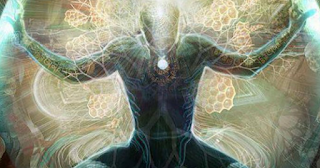I’ve heard it said that for the Indigenous North Americans, tobacco is the hotline to the Great
Spirit. If your culture had taught you that every time you smoked tobacco, the entire universe was listening intently to every thought that was moving through your mind and every feeling that was moving through your heart, you might not be so quick to light one up. It’s hard to imagine some of the kids at school sneaking away behind the bike sheds to eat the Eucharist bread they took from church on Sunday. It puts tobacco into a completely different context. In this way, there was cultural regulation of behavior, casual use didn’t exist, and there was no-one trying to convince anyone that it was cool.
Pre-colonization Native Americans, in comparison to most modern western people, lead incredibly healthy, active lives, with very few toxins and a high level of nutrition. Many also engage in regular rituals, such as sweat lodge – which causes intense detoxification. Combine these factors with the fact that tobacco was used sparingly and smoke was almost never taken into the lungs due to wild harvested tobacco being lot stronger than cultivated tobacco, and you can start to get a picture as to why there is no evidence of tobacco being any kind of problem in their society.
The oldest evidence for tobacco cultivation was found near the Peru/Ecuador border in the Amazon jungle. Nicotina Rustica is up to 26 times stronger than commercially available tobacco and is considered one of the three most powerful plants in Amazonian shamanism. To many, it is even more revered than the sacred visionary medicine, Ayahuasca. Over almost a decade of exploring South American plant medicine practice, I have again and again seen people I respect show deep reverence towards tobacco, and slowly over time, I have come to gain a perspective on why.
From what I have learned from engaging in non-western spiritual practices, perhaps the best model for explaining people’s beliefs about tobacco is that its primary gift is that of an intention amplifier. This helps explains why tobacco is considered by many indigenous cultures to be food for the spirits. When it is offered, it is a way of us giving the gift of amplified intention to whatever the being is that the offering is being made to – something like ‘may your prayers and intentions be made stronger’. For the curandera (shaman) that wishes for the discordance in her ayahuasca ceremony to pass, or for the ayahuasca to come through with more strength, it amplifies her intention also. If she wishes for a person’s energy field to become clear and sealed, it amplifies this intention too. All across the amazon, tobacco is employed for spiritual protection, as when this is the intention, it is amplified.
For the modern smoker, when we feel uncomfortable and wish for this current moment to be in the past and a new moment to be opened up in the present, it will amplify and enable our avoidance of discomfort. If we want to feel more confident in social situations, it will amplify that. If we want to suppress anxiety or the pain of past trauma, tobacco will amplify these intentions too, though more evidence every day is linking supression of emotions with suppression of immunity. Psychiatry even recognizes its ability to help bring a degree of stability to people going through extreme mental health challenges, much like the way it is used in the same way during turbulent ayahuasca experiences.
http://upliftconnect.com/lost-sacredness-of-tobacco/





Комментариев нет:
Отправить комментарий